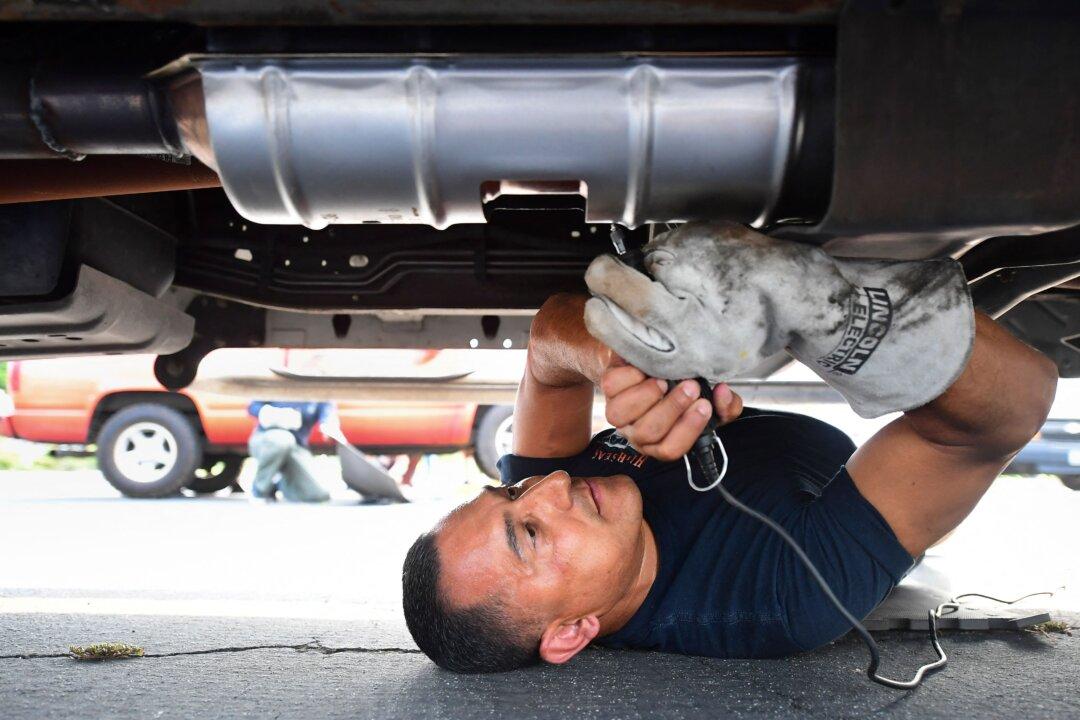Catalytic converter thefts are creating havoc in cities across the country, with thousands of drivers victimized and forced to pay for costly repairs after criminals cut out the devices from under their vehicles.
Incidents nationwide are up 1,215 percent between 2019 and 2022, according to data released by the National Insurance Crime Bureau in January. The agency shows 3,400 stolen in 2019, approximately 14,500 in 2020, and more than 50,000 in 2021.





